June 24, 2022
There was no unexpected knock on the window and we slept well with the pounding surf 50 feet below us. Once, at about 2 am, we woke and saw that we had been enveloped in thick fog, making “home” even cozier.
By 6:30 am, we were headed out of our foggy “sleep-site” and backtracking southward ten minutes to Fort Bragg where we could find coffee and gas—there were no towns big enough to provide either for quite some time when driving north along this remote stretch of the coast.
Starbucks had what we needed and then we walked across the road to Safeway to pick up something to bring along for breakfast a little later. As we approached the store, we were moved along and told that the store was closed due to “systems down!” Such a vague statement, we thought. What systems? Refrigeration, lights, solar, nervous? Instead, we found a tiny bakery in town with day-old muffins for $1.75 each. It hardly mattered what kind they were for that price. On the other hand, gas was painful at well over $6 a gallon.
After about half an hour driving through fog along the coast, we turned east off of Highway 1 onto a scenic less-traveled inland route that would take us out of the fog and through redwood forests before connecting to Highway 101, where we’d continue our northbound journey. It was only about 8 am and there was no point in getting to the Lost Coast before giving the fog at least a chance of burning off.
Within 10 minutes we were above the fog in full sun, along a beautiful road lined with redwoods and firs. The road was about a car-and-a-half wide with no lines or barriers along the edges and it twisted up into the hills above the coast. We saw only four cars in the 45 minutes it took to reach Highway 101.
Hunger was setting in as we turned north on Highway 101 so we were glad when we saw a sign for a rest area about 15 minutes later. Closed! As we approached the town of Leggett, California slightly farther north, we saw a sign for Drive-Thru Tree Park, and turned in, hoping the park would have a picnic area. The woman at the entry booth said sure, we could use a picnic table, but it would cost $15. Nope!
After breakfast in the sun, we took a deep breath and prepared to submerge ourselves again in fog as we turned onto Highway 1 at its terminus and looped south and west across the mountains again to the coast. Highway 1 ends at Highway 101 in Leggett because the coast is too rugged to build a highway. Instead of a highway, this wild northern section of California’s coastline can be reached only on trails and dirt roads and, along with another section farther north, is known as the Lost Coast. Any place that has the name “lost” in it is something we want to find. We’d been to the northern section a few years earlier but were eager to explore this southern part.
A half hour later, we entered the fog again. A few miles after that we turned onto Usal Beach Road—a tiny dirt road that was unmarked and largely concealed by the trees. We were thrilled it was open, as Apple Maps had labeled it as closed (Google Maps, which Susan prefers anyway, disagreed). This road would take us to Usal Beach Campground in the Siskiyou Wilderness section of the Lost Coast, where primitive camping was allowed on the sand.
The road immediately headed steeply uphill through dense forest to a high enough elevation that we were mostly above the fog.
Five miles and 35 minutes of very rutted bumpy single-lane dirt road eventually brought us back down to the ocean (with two idiots nearly hitting us coming the other way around a blind curve on the narrow road). Usal Beach is a huge free-for-all “campground” that’s really just a large wide beach cut in half by a long narrow lagoon. Between the beach and nearby woods, there’s room for dozens of campers. Once again back in the fog, we found a level spot, but not before briefly getting stuck in some soft sand (thanks, 4wd), and set up camp. A few dozen other people were scattered widely about the beach, either camping or visiting for the day—almost all in trucks or SUVs.
The crashing surf was a hundred yards away and we walked along the beach in the deep sand to gaze out at the ocean and the pelicans playing in the surf. Every time we see the Pacific (poorly named!), we’re awestruck at its power and beauty. A stiff onshore breeze was blowing as we watched the four-to-six-foot waves crash. The sun was trying to peak through and at times it was almost warm.
A little while later, we headed out by foot to the nearby five-mile Peter Douglas Trail that would take us up above the beach into the surrounding hills and above the fog. The walk from the beach to the trailhead brought us through a magnificent tunnel of birch trees that lined the rough road.
After climbing a few hundred feet up, we reached the “Enchanted Forest”—a grove of candelabra redwood trees—something we’d never heard of and that are exclusive to Usal Beach. The trees each had several large arms starting out horizontally for a few feet, then curving upward and reaching for the sky, making the tree resemble a candelabra. A sign nearby explained that the trees were simply coastal redwoods that grew this way because of the severe winds and winter storms along the coast. They were fascinating and looked very climbable, something redwoods typically are not. The trail ended at the rough road we’d come in on but 700 feet higher than the campground. We retraced our steps, stopping to admire the views of the fog-covered sea, dense forest, and fern-covered ground.
Back at the campground after the hike, we walked along the beach, stopping for a while to watch the few scattered groups of people enjoying the surf and tranquility. The wind eventually became too much for us by the sea, so we retreated back to our campsite. A small group of Canadian adventure bikers who road in to camp for the night had just arrived. Naturally, Charles went over to chat with them.
Later, a young man came to ask us if where they were camped, closer to the shore, was safe from the rising tide. Somehow, word had gotten around that we were local experts who would know something about it. Or maybe I just looked like an old sea captain and Susan my galley wench. I assured him that where they’d set up their tent was safe from the tide, though later we saw some extra large breakers crash close to them as the tide came in. He didn’t ask us if he’d be safe from the thundering surf, just the tide, I thought, in case I was wrong. Fortunately, as it turned out, my reputation as a tide predictor was safe.
Dinner was an experiment. A few weeks before, I’d made and frozen a mixture of shredded potatoes, carrots and cabbage and we added that to a warmed-up envelope of dilli style chole, an Indian curry.
Finally, around 6 pm, the fog rolled back offshore for a little while, giving us a view from our campsite of the ocean and not just the surf. We sat in our swing chairs, people and wildlife watching—including watching several people fishing in the surf and an otter frolicking in the lagoon.
Soon, more people rolled in, apparently to watch the sunset. One sunset-watching couple got stuck in the sand and we waited to see if they could get themselves unstuck before we offered to dig out our strap and pull them out. Fortunately, they figured it out. Unfortunately for all the sunset watchers, the sun ultimately set behind a thick cloud, hidden.
We rarely make a campfire, mostly because where we camp they’re often prohibited due to extreme fire danger in western drought-stricken forests. But tonight, on the misty beach, there was no danger of a fire escaping so we gathered some driftwood and made a roaring fire. There was a light onshore wind that fed the flames and the moist ocean air was cool enough that the fire felt wonderful.
Darkness, clouds and fog all rolled back in together and the giant campground was muted as people started to leave. Eventually, there were only a few campers left and, with our windows open, we heard nothing but the crashing surf a few hundred feet away as we went to bed.

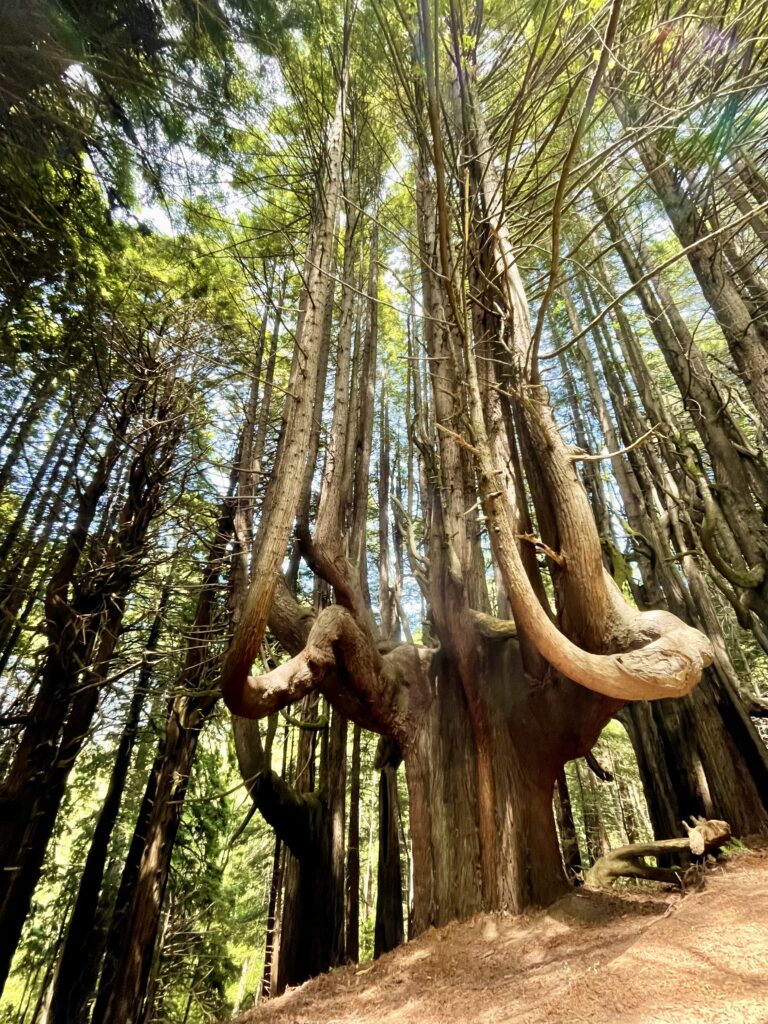
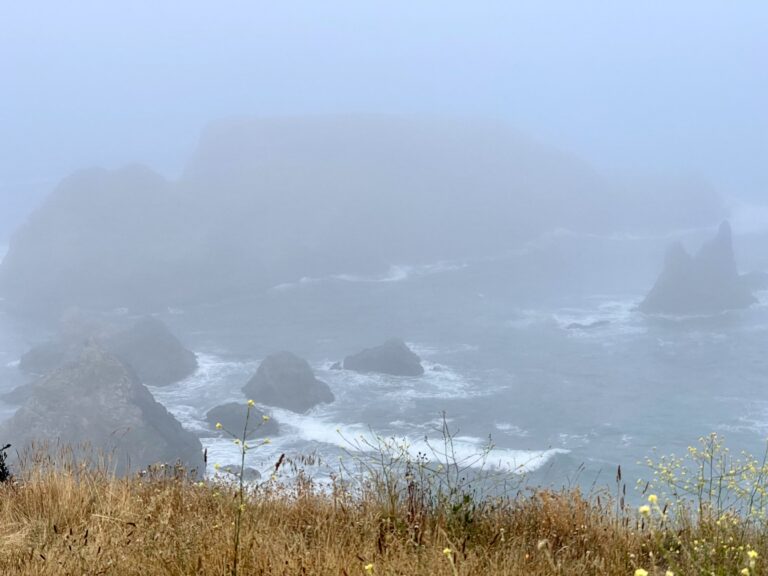
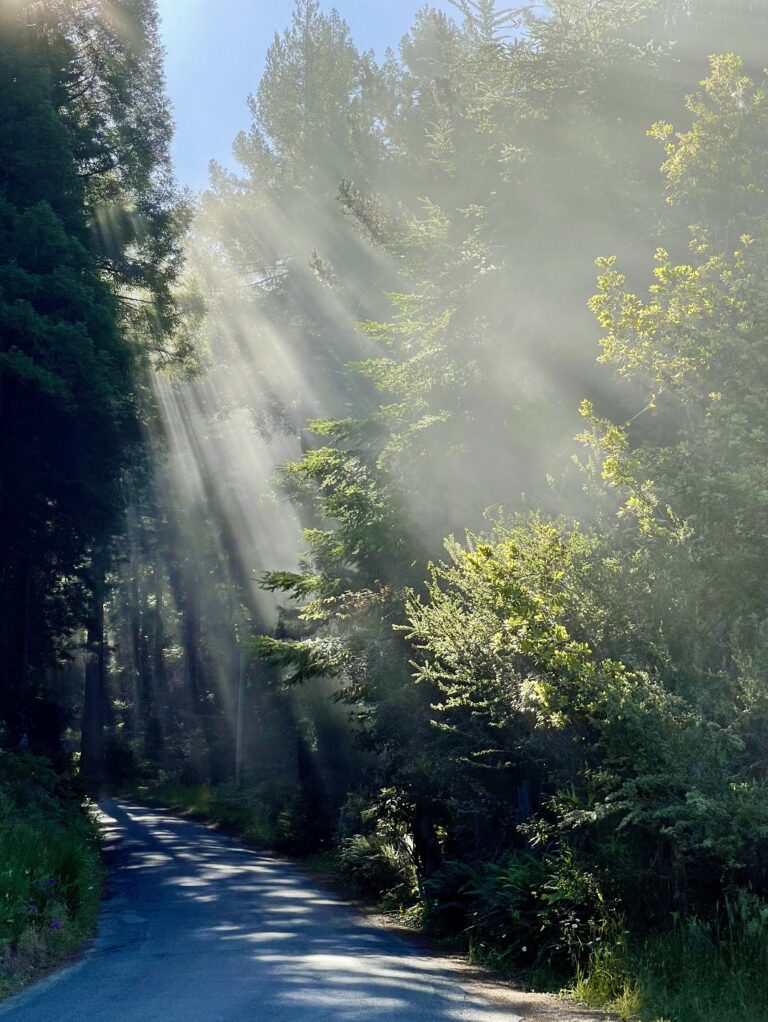
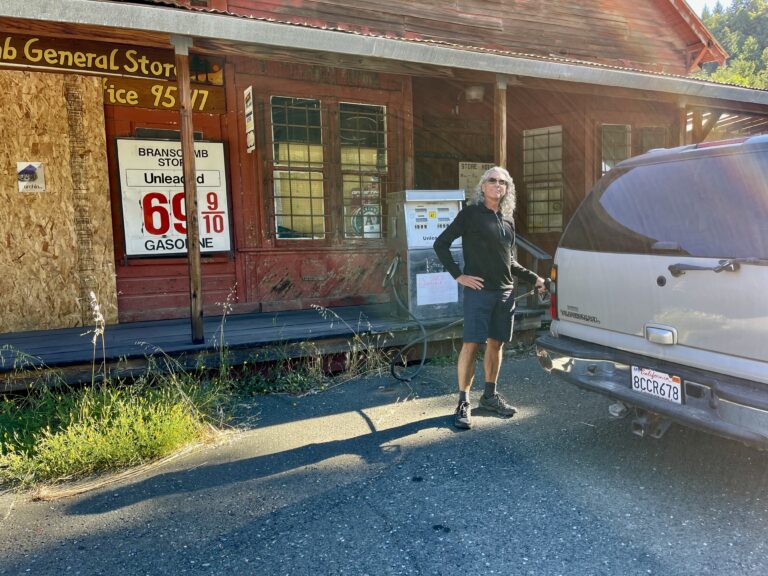
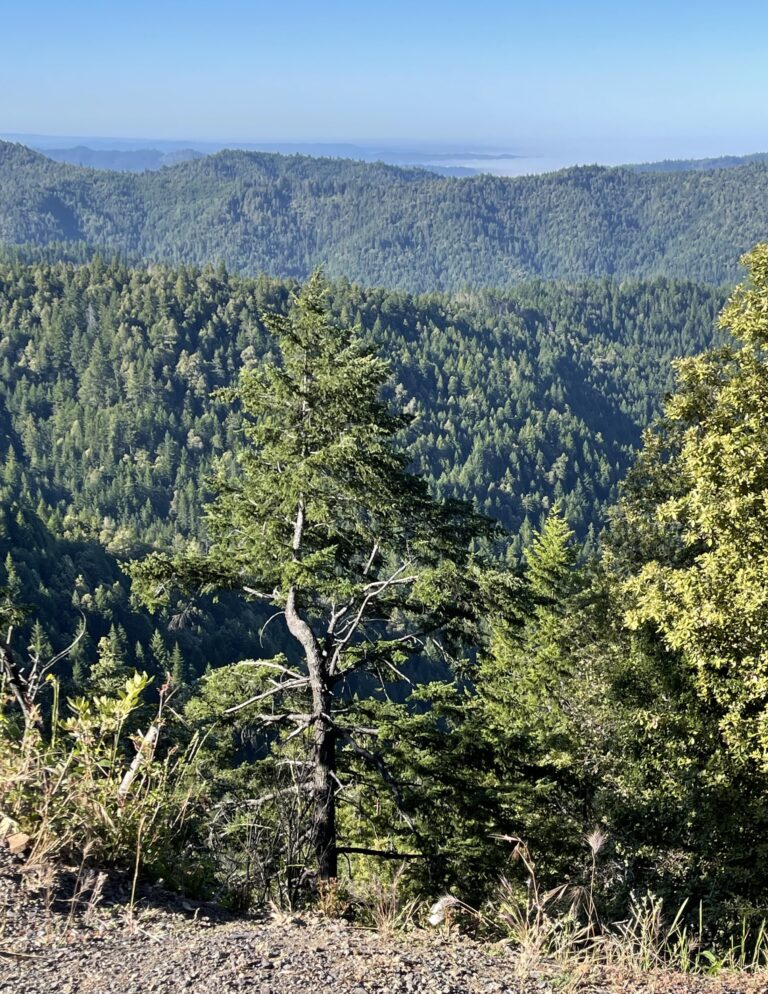
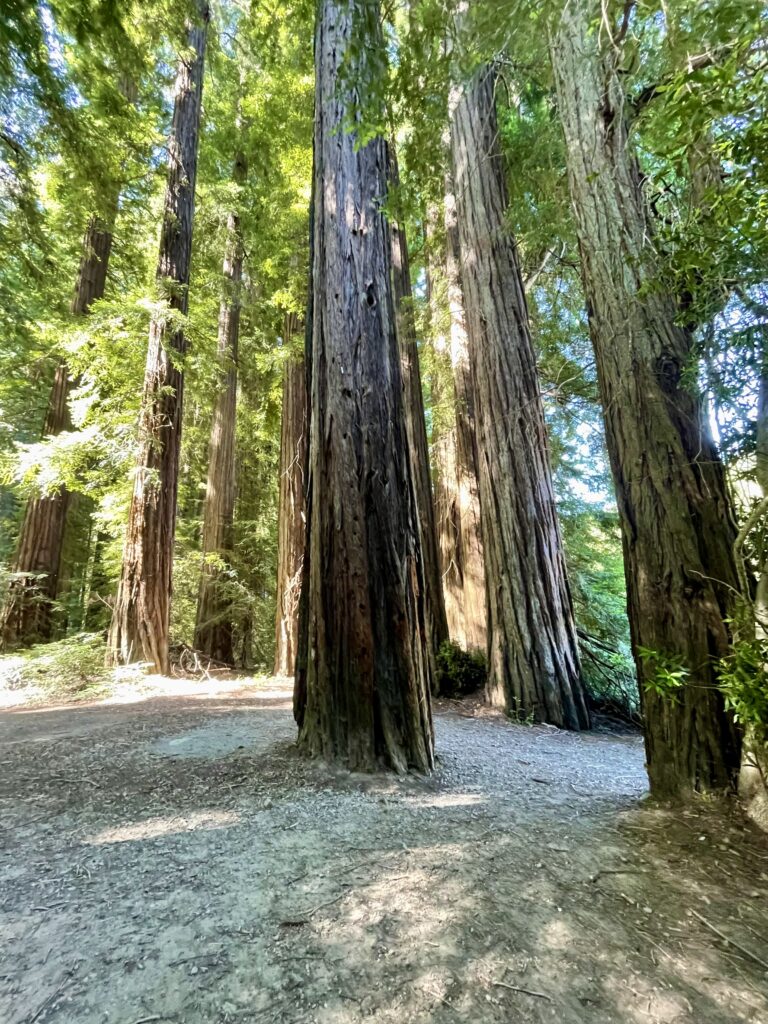
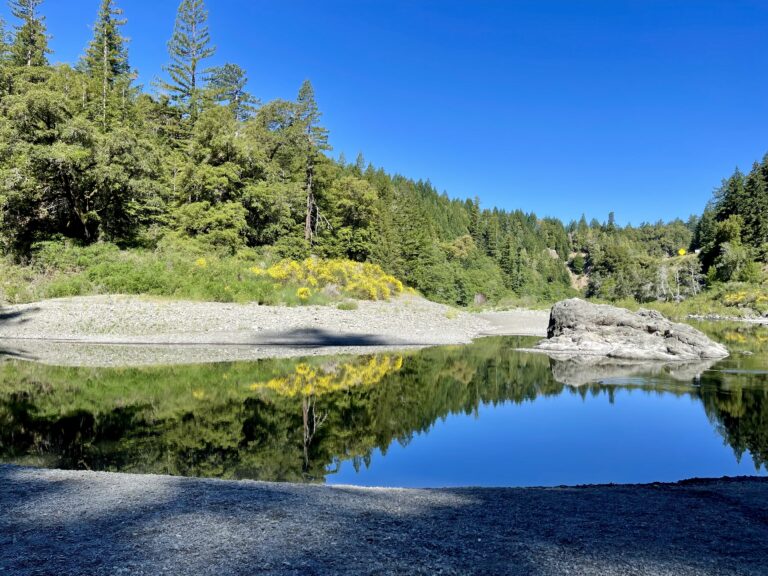
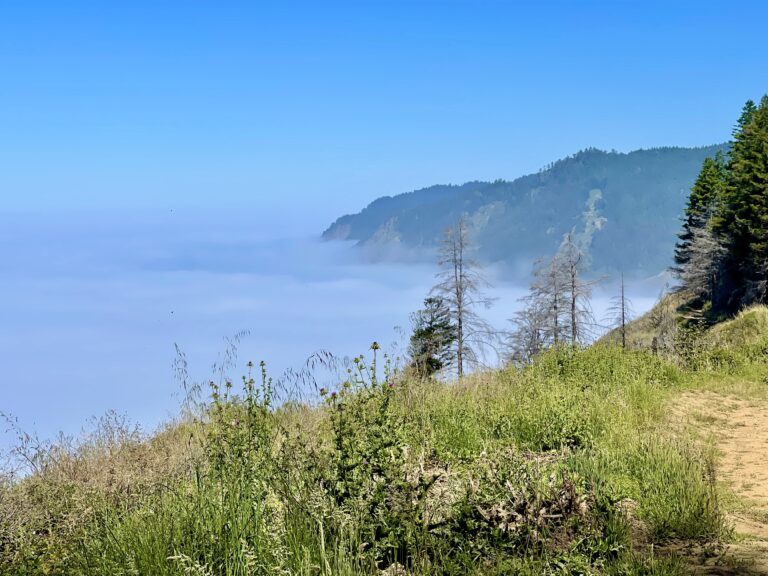
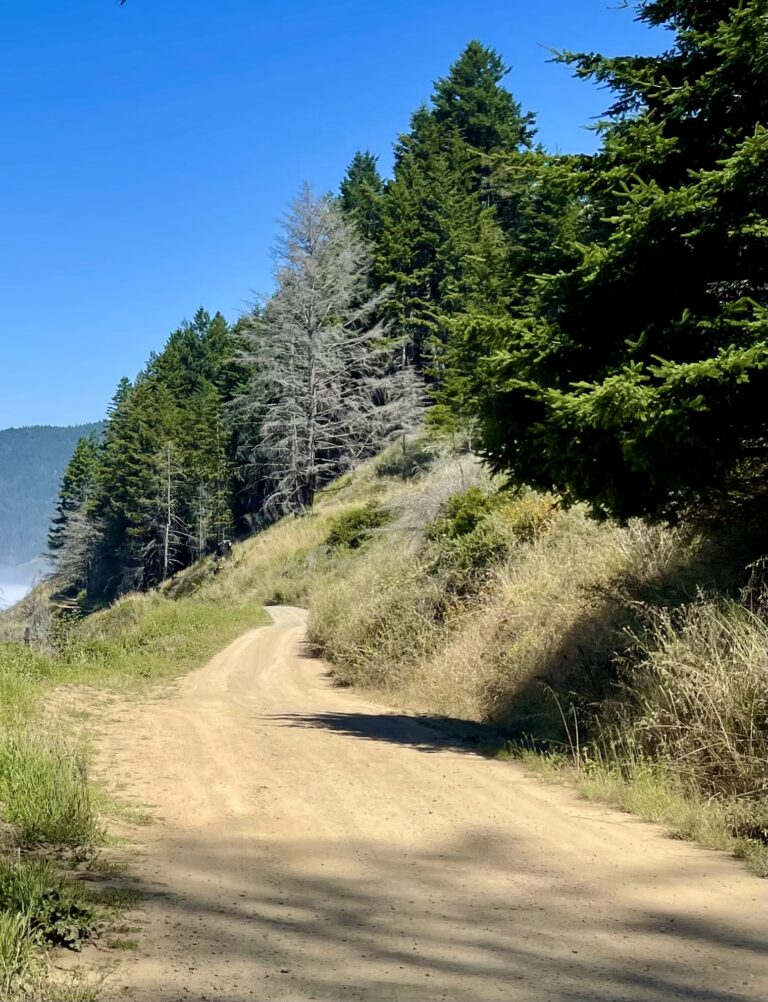
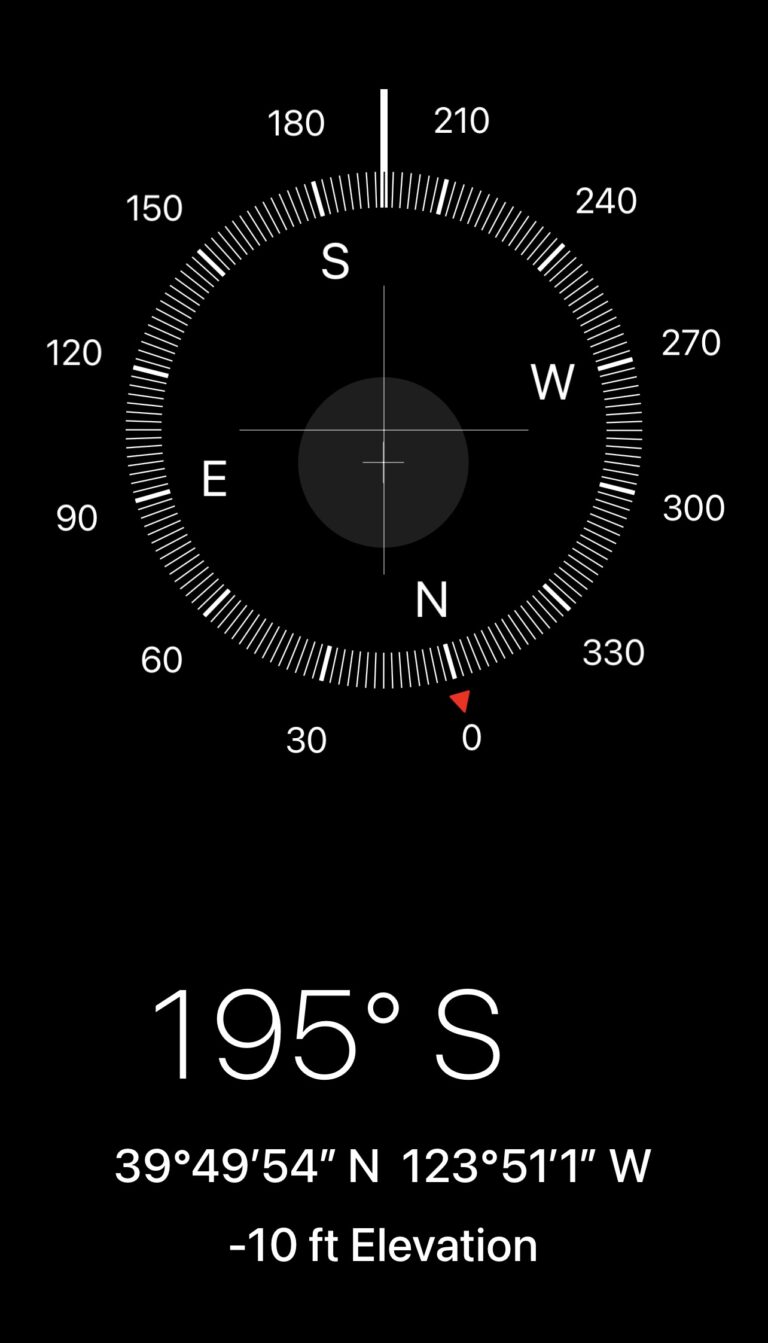
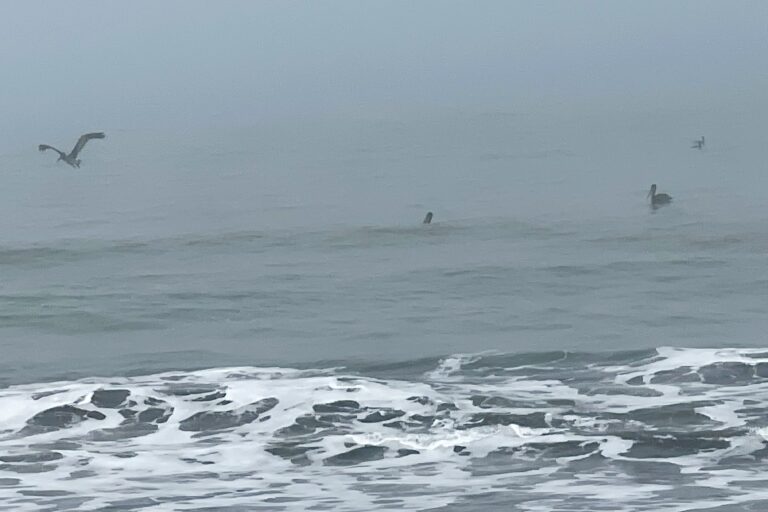
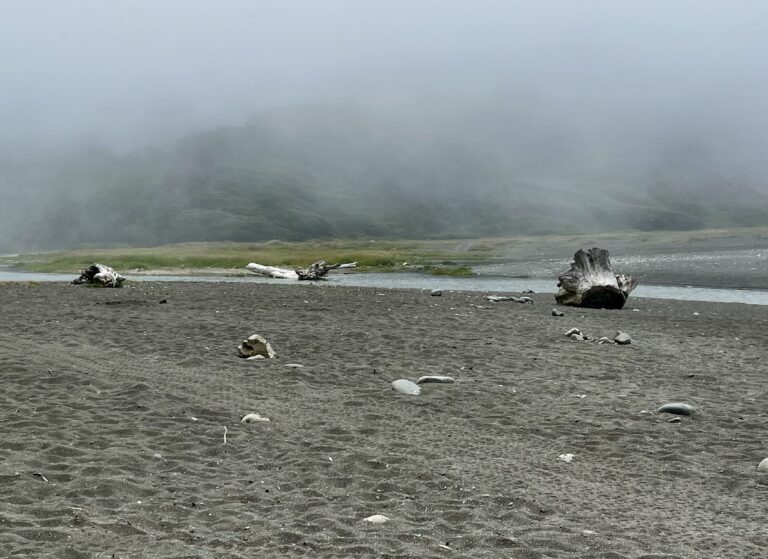
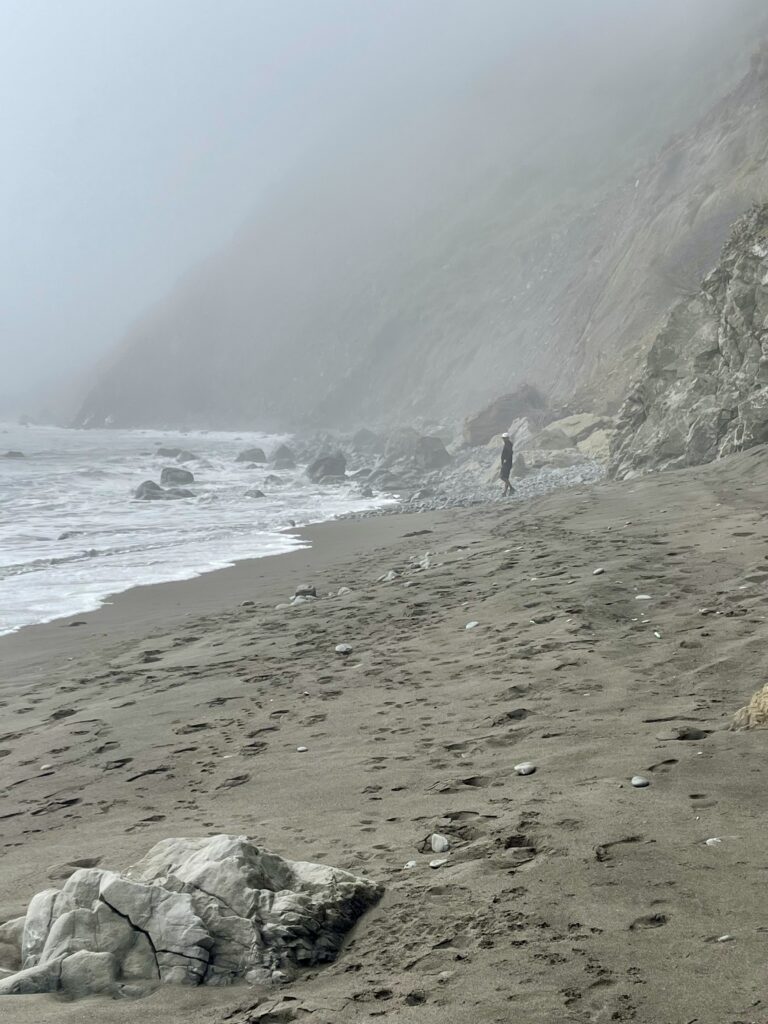
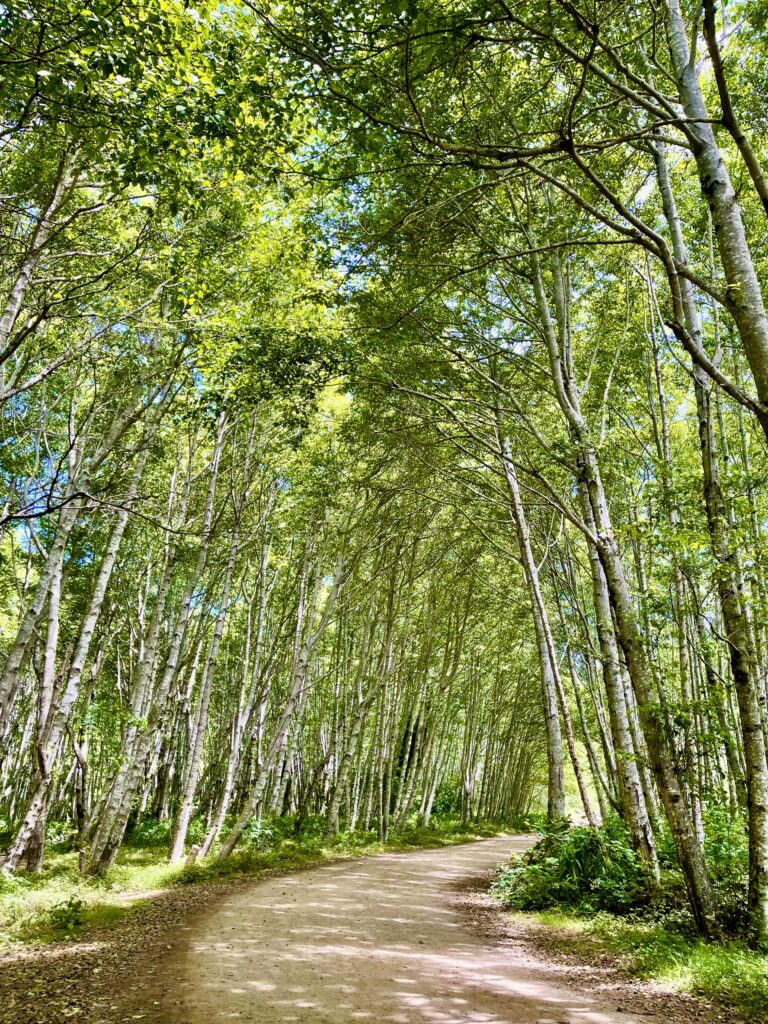
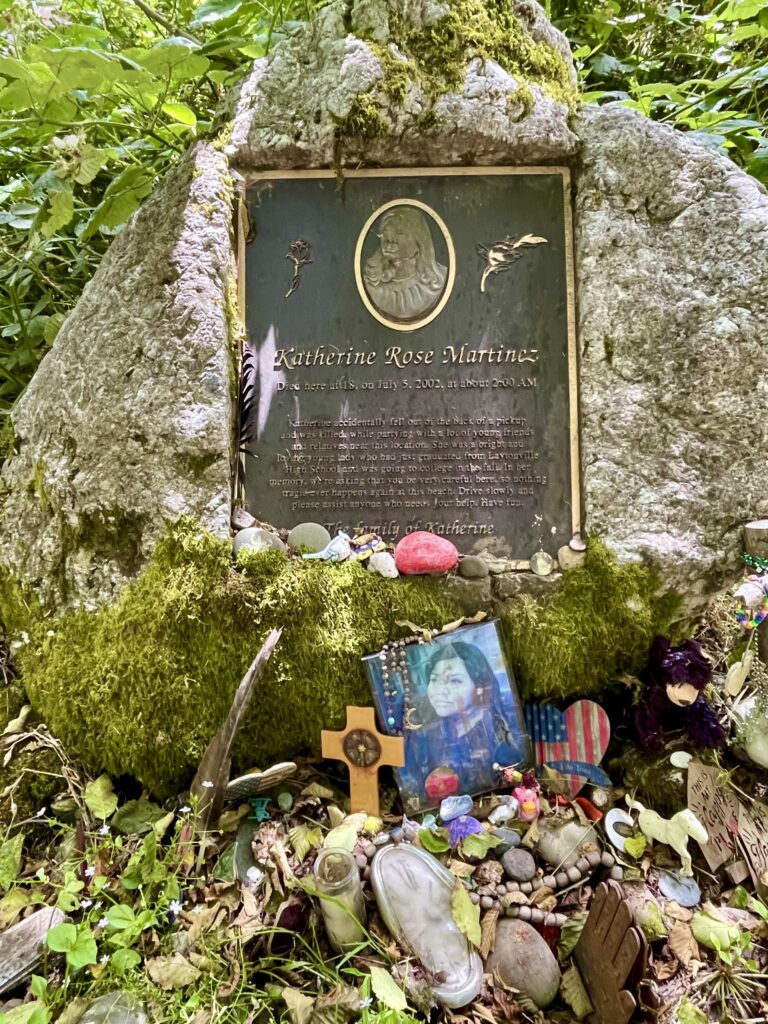
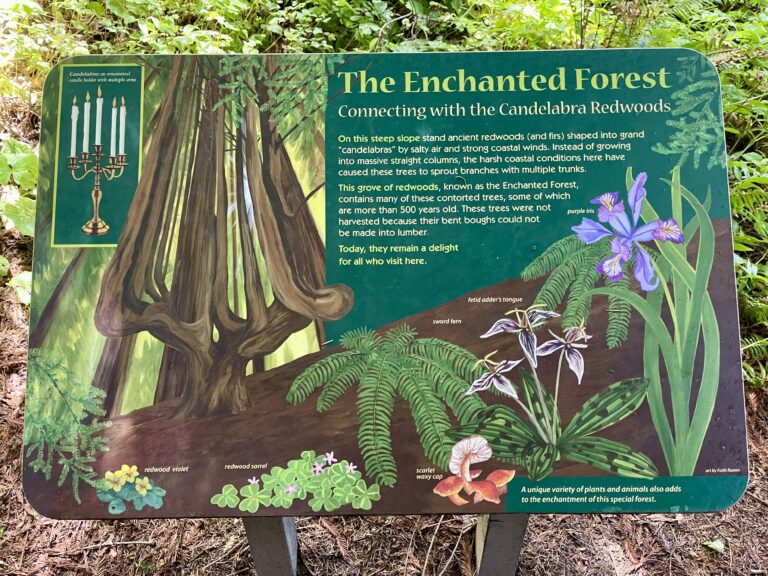
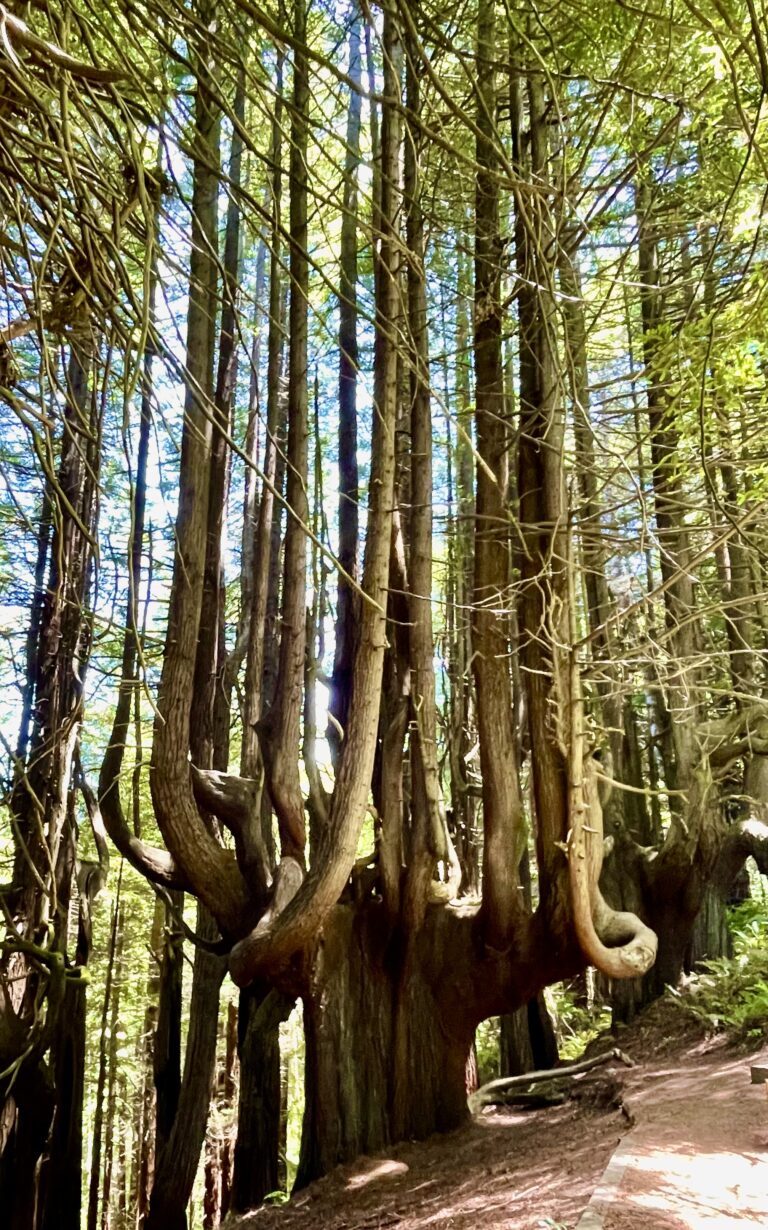
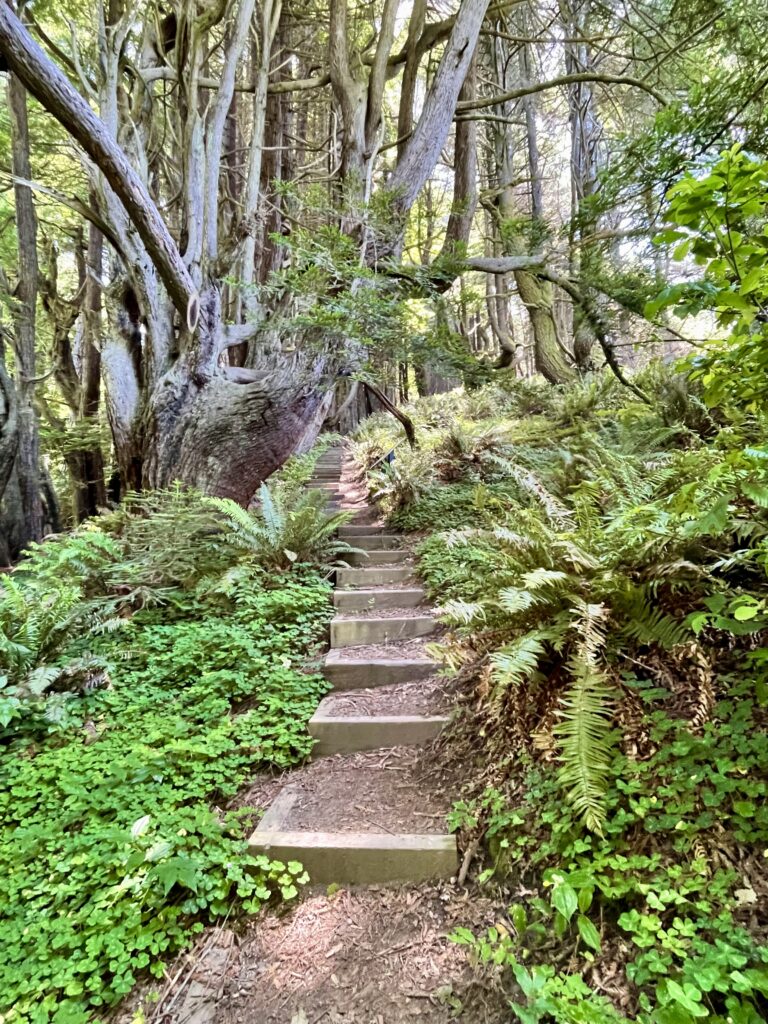
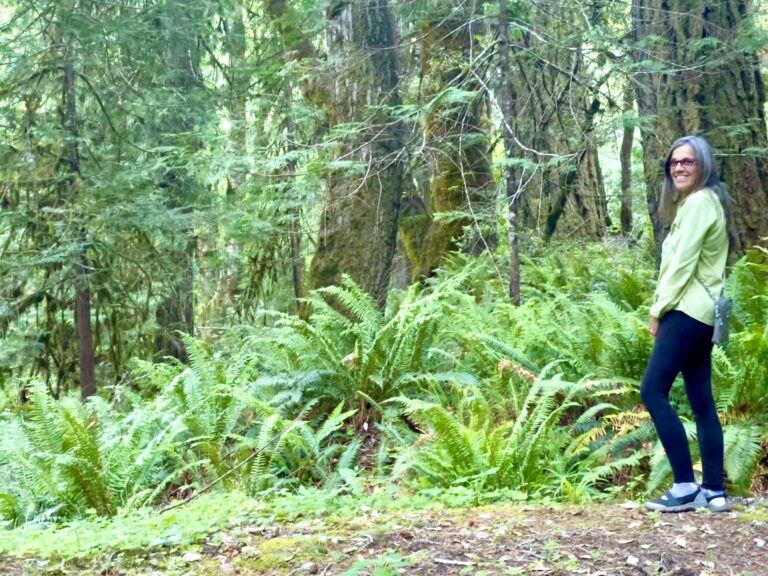
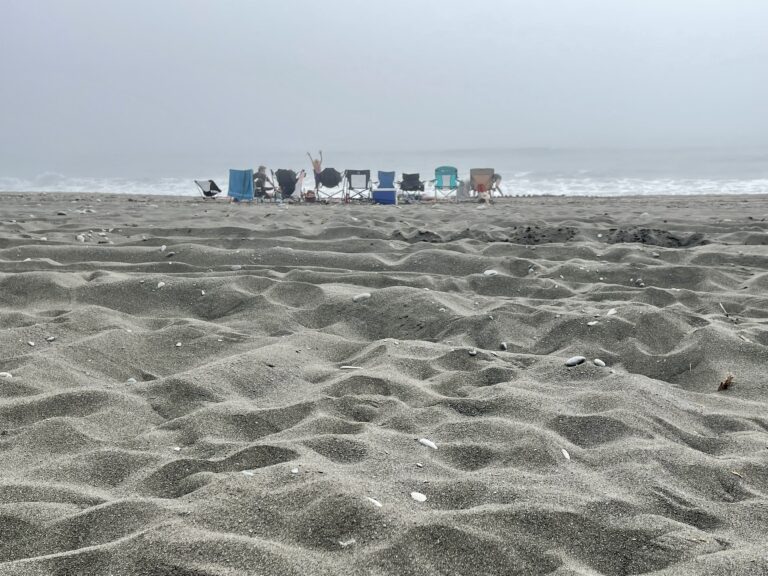
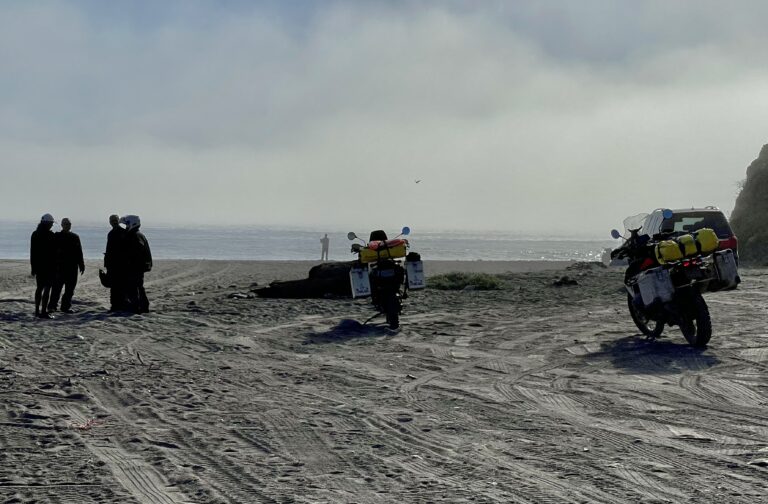
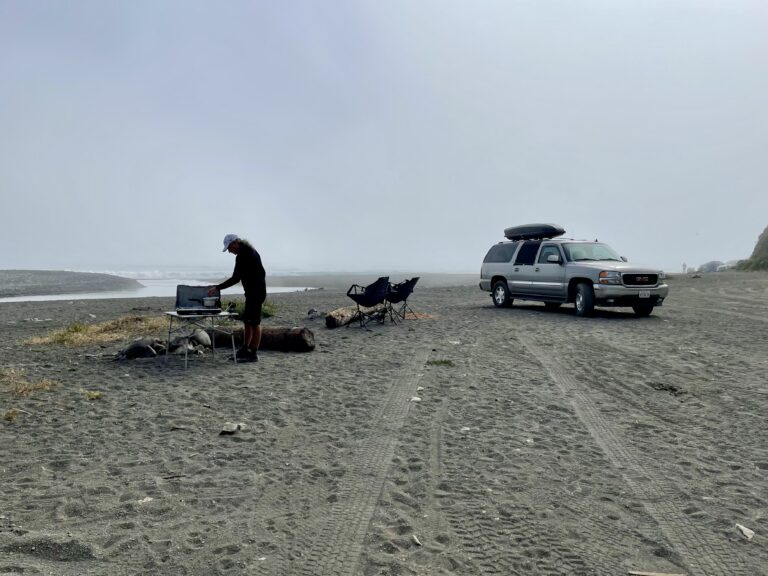
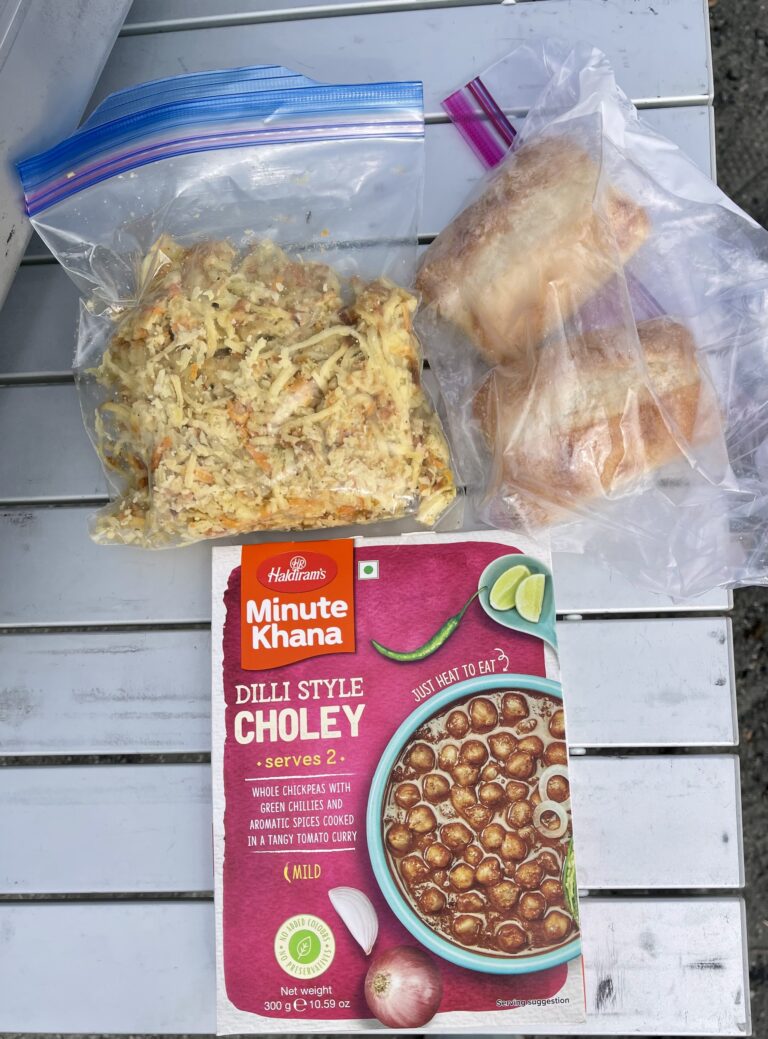
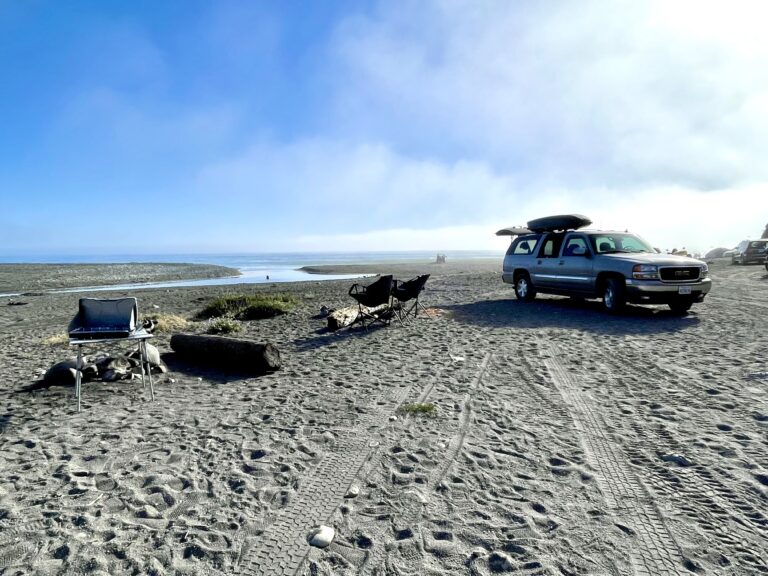

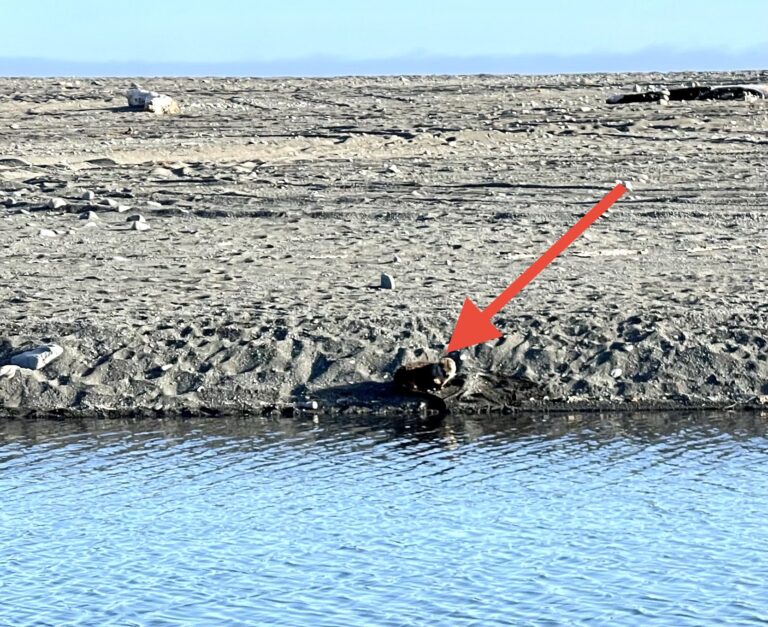
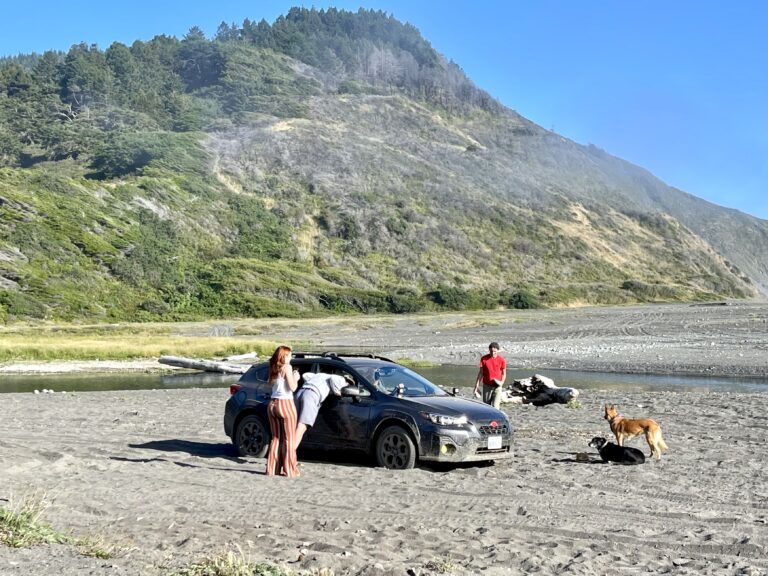
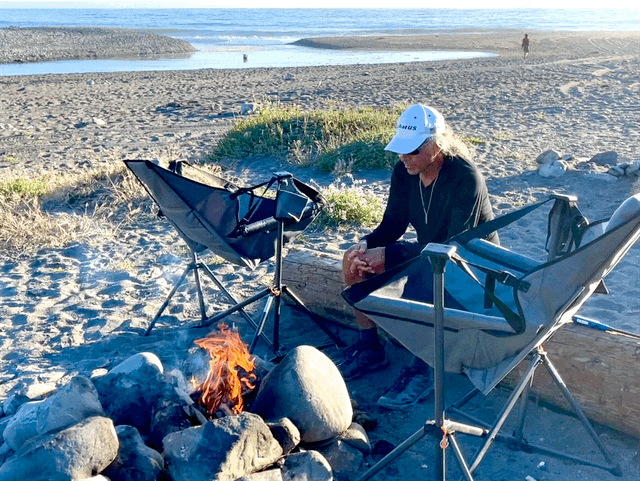
2 Responses
Loved the candelabra redwoods and the photographs are so well done!
Thank you!